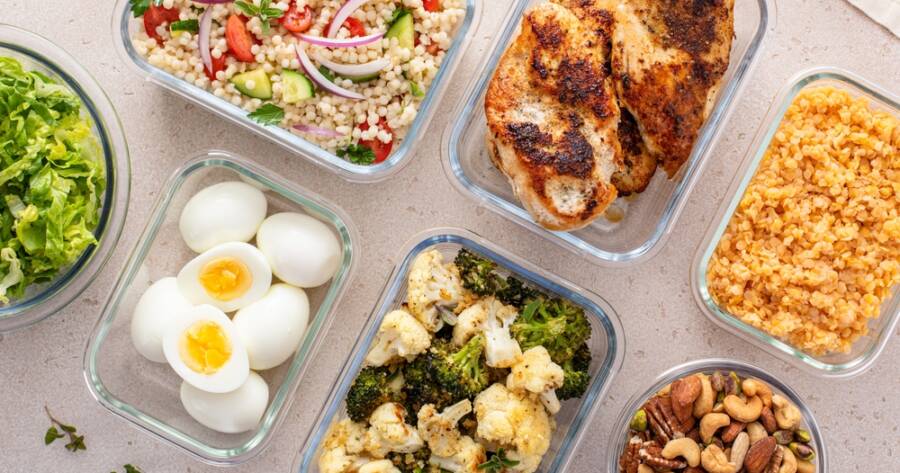Busy schedules often lead to unhealthy food choices, but meal prepping makes it easier to enjoy nutritious, home-cooked meals without the stress. Planning ahead saves time, reduces food waste, and ensures that healthy options are always within reach. Whether prepping for a full week or just a few days, a little organization goes a long way. With the right strategies, meal prep can simplify eating well, making healthy habits more convenient and sustainable.
Make a Plan Before You Shop
Successful meal prep starts with a solid plan. Choosing recipes ahead of time helps streamline grocery shopping and ensures you have all the necessary ingredients. Opt for meals that use overlapping ingredients to reduce waste and simplify cooking.
Writing out a meal schedule for the week also prevents last-minute decisions that lead to unhealthy choices. Using a grocery list or a meal-planning app keeps shopping trips efficient and cost-effective, making it easier to stick to a healthy eating routine.
Batch Cook to Save Time
Batch cooking allows you to prepare multiple meals at once, cutting down on daily cooking time. Dedicating a few hours to cook proteins, grains, and vegetables in bulk ensures you have ready-to-eat ingredients throughout the week. Roasting a tray of vegetables, grilling chicken, or making a big pot of soup creates versatile meal components.
Cooking in large portions also saves money by reducing food waste and preventing unnecessary takeout or restaurant meals. Keeping meals simple but flavorful makes sticking to meal prep effortless.
Portion It Out for Easy Grab-and-Go Meals
Prepping meals in portioned containers makes healthy eating convenient and eliminates guesswork. Dividing meals into single servings helps control portion sizes and ensures balanced nutrition. Using reusable meal prep containers keeps food fresh and organized, making it easy to grab a meal for work, school, or busy days.
Labeling meals with dates helps track freshness and encourages variety throughout the week. Having pre-portioned meals readily available reduces the temptation to reach for less nutritious, quick-fix options.
Stick With It and Build a Routine
Meal prepping becomes easier when it’s part of a weekly routine. Setting aside a specific time each week—such as Sunday afternoons—makes it a consistent habit. Starting with just a few prepared meals and gradually increasing variety prevents burnout.
Keeping recipes simple and rotating ingredients prevents boredom while ensuring balanced nutrition. Over time, meal prepping feels less like a chore and more like a time-saving, stress-free way to stay on track with healthy eating goals.
The Benefits of Meal Prepping
Meal prep is more than just a time-saver—it improves health, reduces stress, and helps maintain a balanced diet. By controlling ingredients, you can reduce excess sodium, sugar, and unhealthy fats while increasing nutrient-dense foods.
Preparing meals in advance also saves money by cutting down on takeout and restaurant dining. Knowing what’s in your food eliminates the need for last-minute unhealthy choices. Plus, meal prepping makes it easier to stick to portion control and avoid mindless snacking.
Stay Flexible and Adjust as Needed
Meal prepping should fit your lifestyle, not feel restrictive. If a schedule changes or a meal doesn’t sound appealing, being flexible allows for adjustments. Some weeks may require full meal preps, while others might just need a few ready-to-eat snacks.
Preparing extra servings to freeze for later offers a backup plan when time is tight. Trying new recipes and switching up ingredients keeps meal prep enjoyable. Finding a system that works for you makes sticking with meal prep a long-term success.
Making Healthy Eating Simple and Stress-Free
Meal prepping makes healthy eating more convenient, budget-friendly, and enjoyable. With a little planning and consistency, it becomes second nature, removing the stress of daily meal decisions.
Whether prepping a few meals or an entire week’s worth, every small effort adds up to better habits and a healthier lifestyle. By making meal prep part of a routine, you set yourself up for success—saving time, money, and energy while fueling your body with nutritious, home-cooked meals.

